A traveling singer who speaks in a different language
We use Google Cloud Translation Services. Google requires we provide the following disclaimer relating to use of this service:
This service may contain translations powered by Google. Google disclaims all warranties related to the translations, expressed or implied, including any warranties of accuracy, reliability, and any implied warranties of merchantability, fitness for a particular purpose, and noninfringement.


A ukulele was tucked into the side pocket of a blue trekking bag. A pair of boots was tied to a bag with the same string. Devendra Bablu was ready to go to Dhorpatan. It's getting worse. I am going to see that," he said, "if the mood is right, I can go for a walk around Dhorpatan. Now it is said for three-four days. However, it may take several days. I have no address.'


Although born and brought up in Baglung, he has never visited Dhorpatan, so he wants to see that environment. "It's fun to walk around," he said, "it also encourages me to create new things." Life is a search.'
Devendra Bablu, who came back to Dhorpatan, is a singer who is trying to advance in the music field. His lyrics are simple and very original. That's why those who listen to him once do not miss listening to him again and again. Anyone who grew up in a rural environment will also be reminded of the atmosphere of his songs. Devendra from Baglung, Dhamja is Saila Bhai of Prakash Saput, an established name in the music scene. "I found out very late what to do in life. After completing my SLC in the village, I wanted to study and do something new when I came to Kathmandu, but I didn't know what to do. When I figured out what to do, I've been wandering ever since.'
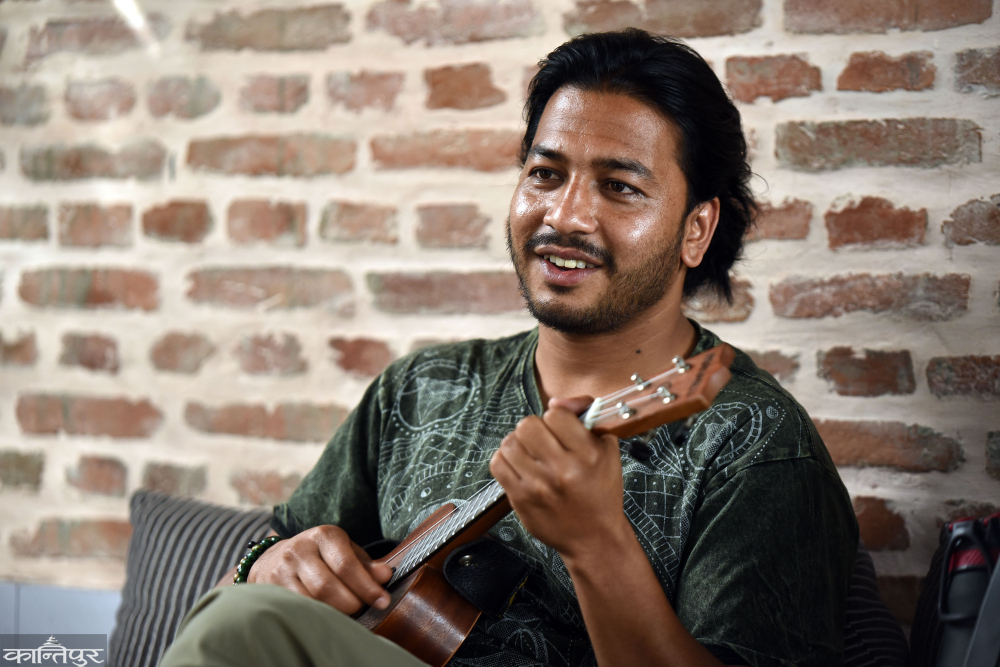 Photos: Angad Dhakal/Kantipur
Photos: Angad Dhakal/Kantipur
He was lost somewhere at Bodhi Books in Tangal, gossiping about the ups and downs of his musical journey. Chuss Dari, some long and straightened hair, puffy face, t-shirt with mandala picture and black glasses hanging in front, baggy pants and sandals.
'Going to Dhorpatan in search of what?' He was immediately taken aback by this question. ``Khoi, there is dancing at the fair. It's fun. Meet new people. New stories will be heard,' he said, 'Perhaps, you will find yourself somewhere there?' He smiled. However, there was no sense of satisfaction in his smile.
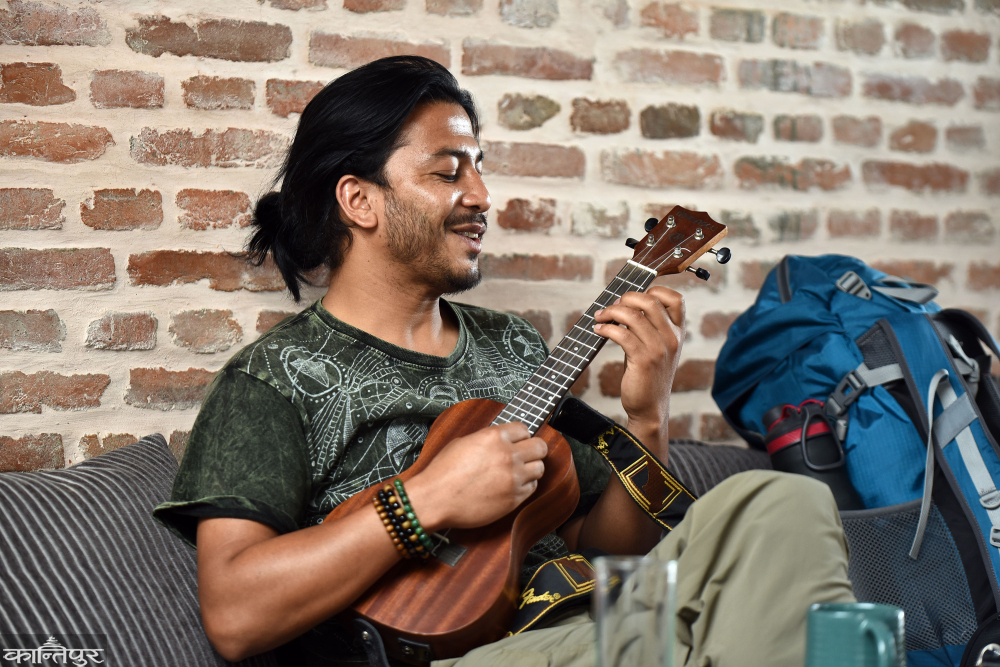 In most of Devendra's songs, lovers are not separated. Anyone listening to his songs for the first time might think he's a wounded lover or a soul recovering from a breakup. He does not agree with that. I have not even made love. That's why there is no separation," he said laughingly, "I write songs by listening to the experiences of my friends. I'm not that experienced.''Her facial expression seemed to be giving her no support as she tried to establish that she was not in love.
In most of Devendra's songs, lovers are not separated. Anyone listening to his songs for the first time might think he's a wounded lover or a soul recovering from a breakup. He does not agree with that. I have not even made love. That's why there is no separation," he said laughingly, "I write songs by listening to the experiences of my friends. I'm not that experienced.''Her facial expression seemed to be giving her no support as she tried to establish that she was not in love.
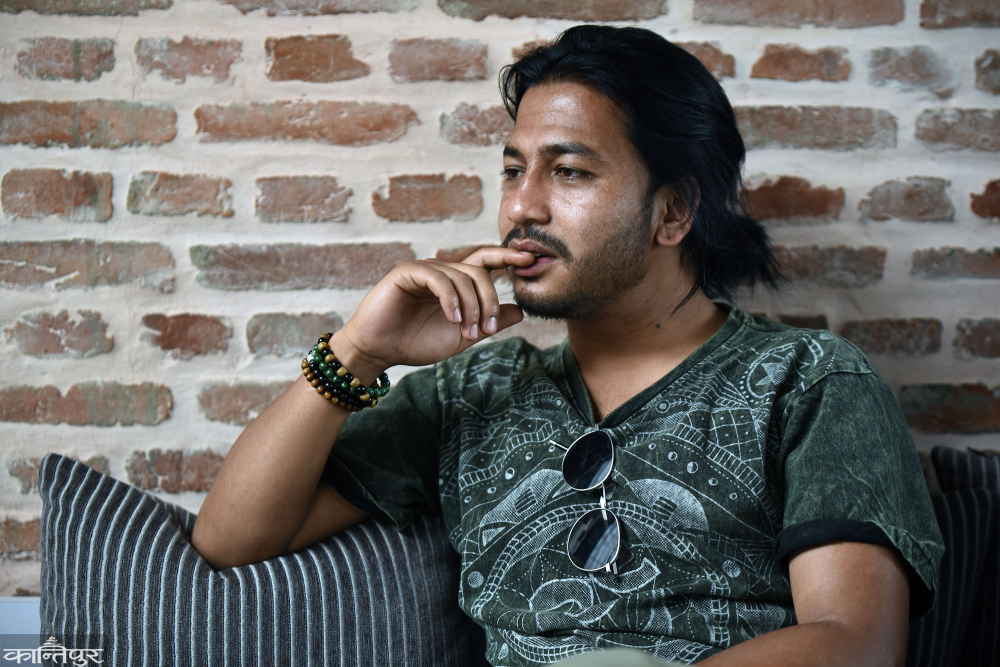 Never liked someone? Is it the pain of one-sided love that could not be expressed as an introvert?' He was a little shy at this question. And a little excited said, 'Khoi? That's what can happen.'
Never liked someone? Is it the pain of one-sided love that could not be expressed as an introvert?' He was a little shy at this question. And a little excited said, 'Khoi? That's what can happen.'
Der gaye koili chari zero gayo vanaima
I am waiting for Hitai's love to come to me...'
These are the words of Devendra's latest song 'Seti Dobhan'. This song is slowly gaining viewers and listeners on YouTube. The song, which was released two weeks ago, has been viewed by 255,000 people by the time this article was prepared. It is trending at number 11 in the Nepali music category of YouTube.
The view count shows that Devendra's other songs on his own YouTube channel, which has more than two lakh subscribers, are well liked by the audience. Commentary on the song also helps him to get an idea of how the audience perceives him. However, he is not one of the singers who release songs frequently. "It is very difficult for me to release the song. I enjoy the process more than the result. That's why I am always in a dilemma whether to make it public or not," he said. "That is also the reason why it took nine months to make Seti Doban public. I want to do something new. But, I also have my own limitations.'
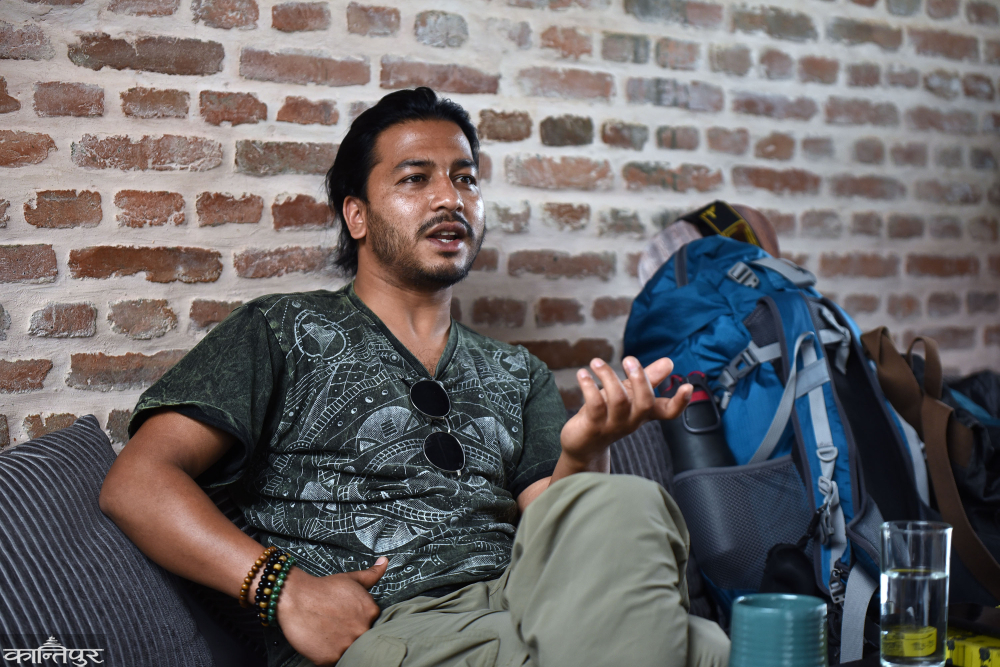 Devendra, who says that he learned to play Madal by following the elders in the village fairs, feasts and gatherings, is also aware of his weaknesses. He claims that he is trying to make it his power. I have no formal knowledge of music. When you should have learned, you struggled to survive. I know I have to learn now. However, I am afraid that the skills I have will be lost," he said, "The reason why most of my songs are of the same type is the limitation of my skills. I don't know what to do.'
Devendra, who says that he learned to play Madal by following the elders in the village fairs, feasts and gatherings, is also aware of his weaknesses. He claims that he is trying to make it his power. I have no formal knowledge of music. When you should have learned, you struggled to survive. I know I have to learn now. However, I am afraid that the skills I have will be lost," he said, "The reason why most of my songs are of the same type is the limitation of my skills. I don't know what to do.'
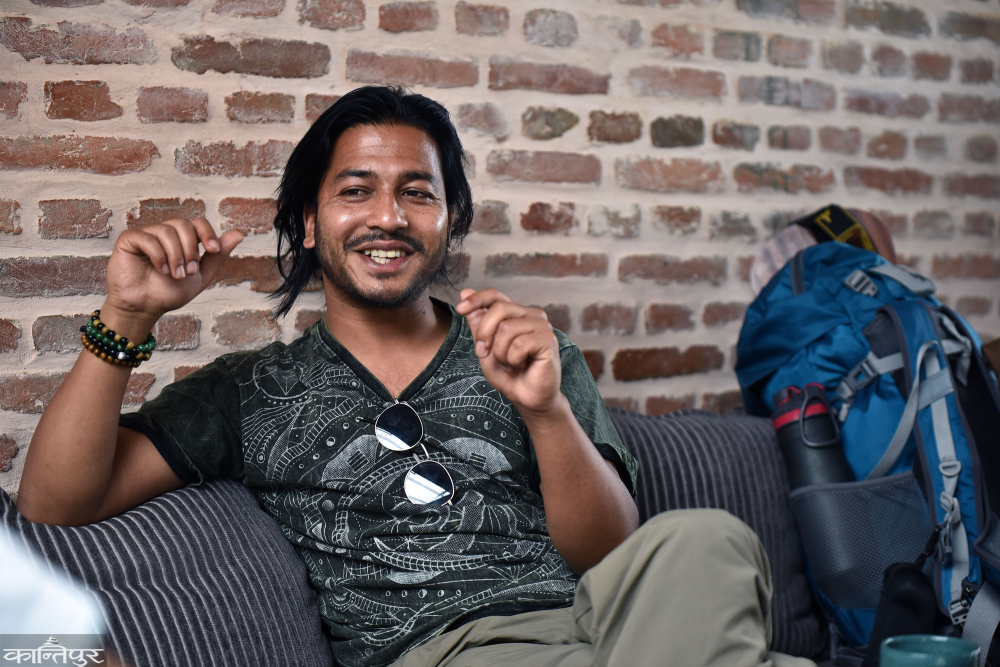 If you have the desire to achieve mastery in any genre, you should be able to forget what you know first. Learning the new also means forgetting the old. It is not that Devendra does not want to learn new things. However, it is difficult for him to forget that he left. I don't know much except that there are seven chords in music. Even a self-composed song does not know from which note it begins. When the arranger asks in the studio, I tell you to listen and arrange it yourself,' he said, 'The music I made without knowing anything is going well when I record it in the studio.' Not that he was trying to learn to play the guitar or the ukulele. He argues that while learning
If you have the desire to achieve mastery in any genre, you should be able to forget what you know first. Learning the new also means forgetting the old. It is not that Devendra does not want to learn new things. However, it is difficult for him to forget that he left. I don't know much except that there are seven chords in music. Even a self-composed song does not know from which note it begins. When the arranger asks in the studio, I tell you to listen and arrange it yourself,' he said, 'The music I made without knowing anything is going well when I record it in the studio.' Not that he was trying to learn to play the guitar or the ukulele. He argues that while learning
, it is difficult to dominate his own rhythm again. Sometimes it's good to know nothing. But it has its limitations," he said, "Even if you play a lot of things in your mind, it is difficult to give newness to them musically. I am in two minds about what to do about this too.'
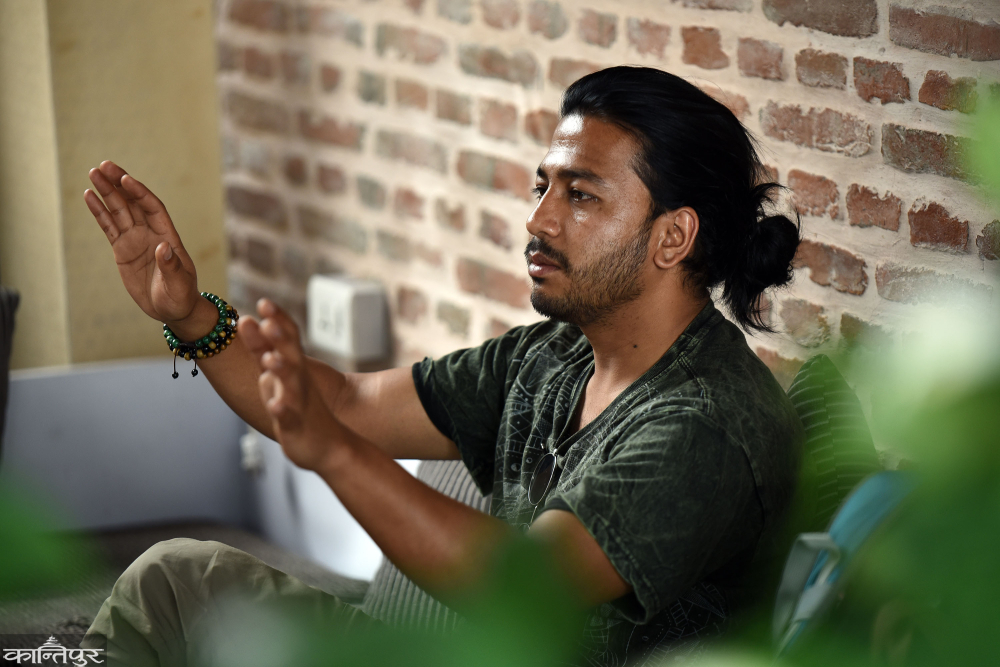 Devendra thinks that if he had been able to learn music as soon as he came to Kathmandu, the situation would have been different. "At that time, college in the morning, waiter from noon to midnight," he said, "I don't even remember those two-three years." Neither made any friends in college, nor at work. According to him, it was like a difficult period for him. "Unable to wash the dress in the room, I used to wash and dry it in the basin of the restaurant. The next day when I put on that dress, I felt like a kitchen,' he said, 'I don't like that feeling even now.' He learned acting while staying there for three years. He sang his favorite song from the back stage. The encouragement he received there showed him his destination. Gave him a way to express his thoughts. He argues that he is no longer conflicted about what to do. Now I have no idea what to do in life. How to proceed? There is only a hoothooti about how to be established,' he said, 'I am in a hurry to move forward rather than learning.' "At that time, I not only learned to play, but also learned what visual art is, how to tell a story," he said, "While there, I also acted in some plays." I also went to Chokchok in Kathmandu Valley and performed a street play. That's why he showed me his way.'' The conflict of his mind is also reflected in the song and video. He argues that the conflict that plays in the minds of most of the youth today is similar to his own.
Devendra thinks that if he had been able to learn music as soon as he came to Kathmandu, the situation would have been different. "At that time, college in the morning, waiter from noon to midnight," he said, "I don't even remember those two-three years." Neither made any friends in college, nor at work. According to him, it was like a difficult period for him. "Unable to wash the dress in the room, I used to wash and dry it in the basin of the restaurant. The next day when I put on that dress, I felt like a kitchen,' he said, 'I don't like that feeling even now.' He learned acting while staying there for three years. He sang his favorite song from the back stage. The encouragement he received there showed him his destination. Gave him a way to express his thoughts. He argues that he is no longer conflicted about what to do. Now I have no idea what to do in life. How to proceed? There is only a hoothooti about how to be established,' he said, 'I am in a hurry to move forward rather than learning.' "At that time, I not only learned to play, but also learned what visual art is, how to tell a story," he said, "While there, I also acted in some plays." I also went to Chokchok in Kathmandu Valley and performed a street play. That's why he showed me his way.'' The conflict of his mind is also reflected in the song and video. He argues that the conflict that plays in the minds of most of the youth today is similar to his own.
'A heart that touches the sky, a heart that drowns in the ocean
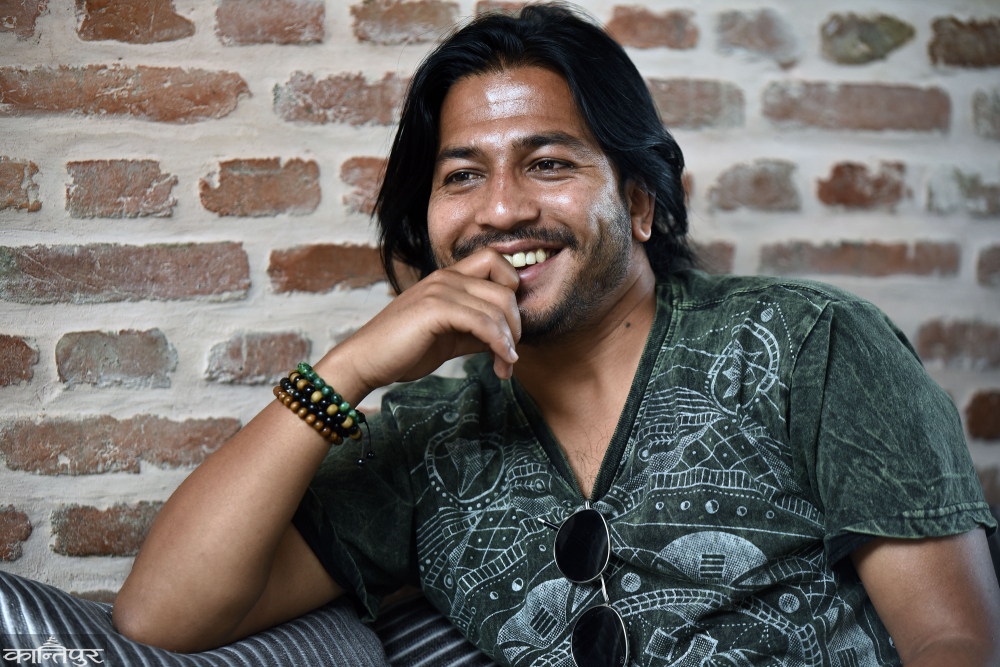 I'm still here, whether it's a heart to reach
I'm still here, whether it's a heart to reach
Let's live seventy, half of it is gone
It's getting to the evening, it's already noon
I look tired, I look like a loser
break I'm running, I'm running behind...'
These words of Devendra's song 'Halkhabar', which was released a year ago, speak a lot by themselves. He has not sung fun songs to get rid of the tag of 'virhi singer'. However, even though the tune is fun, the lyrics are weird. "Khoi ke ho sad song is too much, I was confused. But, the words are also the same,' he said with a laugh, 'It's like this is my way now.'
Devendra also thinks that since the current political environment and the state of the country has made everyone depressed, the reflection of that has also come in his creations. There was a conflict in the village. After the conflict came peace. Peace has come after the conflict, people from faraway places have not yet realized that, he said, the situation in the village is still difficult. Sitting there, it seemed like that. When the place changes, the place appears. And you know how difficult your experience is. Devendra's own experience is also similar.
Untouchability and discrimination in the village was not a big deal to him, but after coming to the city, he felt that he lived a different life. "When I was there, I thought that the world would be like this," he argued childishly, "After coming to the city, I realized that it was not right." But that was the environment. When I remember it now, it seems like I lived many lives in one lifetime. He has no complaints with the village where he spent his childhood. That's why he has made the name 'Bablu' given by his mother to connect with his roots. Bablu is very dear to me. It reminds me of my mother's love and village,' he said, 'That's why I added Bablu after the name.' So he took out the ukulele from his bag and started playing the G chord with his fingers:
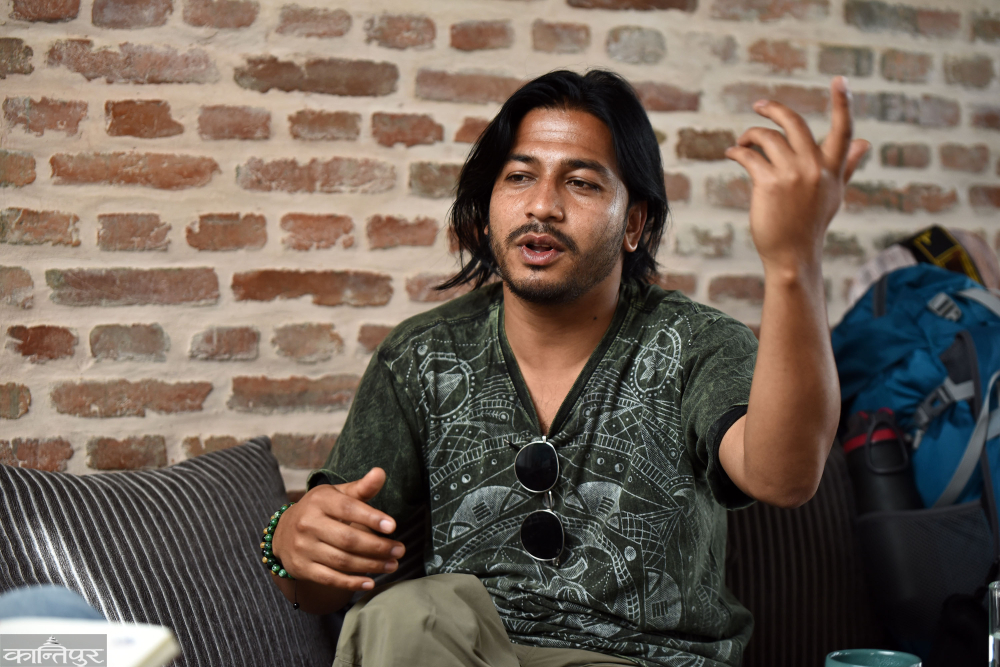 This mind flies there. break
This mind flies there. break
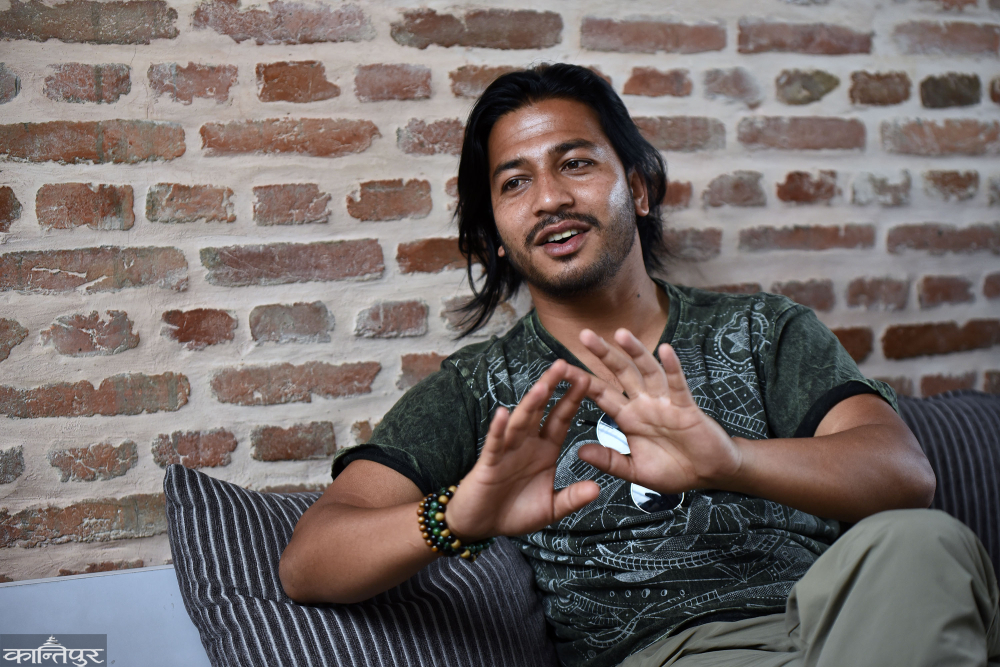
प्रकाशित : चैत्र २२, २०८० १०:३८


 ३०.१२°C काठमाडौं
३०.१२°C काठमाडौं

















